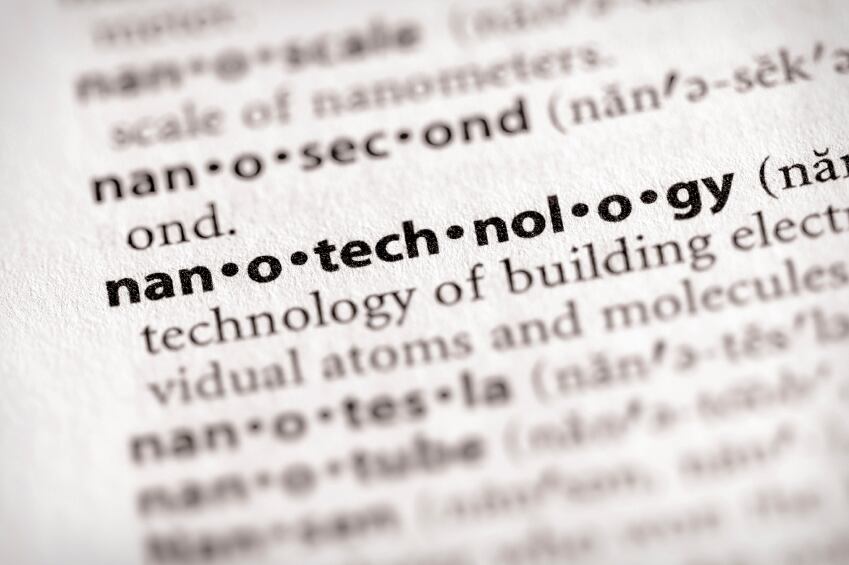In a statement issued by the food science and technology industry body, the use of nanotechnology to create nano-encapsulated nutrients such as vitamins, or nano-sized calcium or iron allows them to be added to drinks with no effects on clarity or visual appeal.
“Adding nutraceuticals such as vitamins, calcium, iron etc to foods to benefit consumers has been used for many years,” they said. “Additionally, and importantly, they are absorbed faster in the body when in the nano state.
“Examples of the use of nanotechnology, in this area, includes many variants of nano-calcium, nano-magnesium and nano-iron.”
Nanotech and nutrition
The use of nanotechnology techniques and materials have found much use in the nutrition industry as bioactive compound delivery systems usually in the form of liposomes or biopolymer-based nanoencapsulated substances.
Nano’ forms of nutrients or vitamins act much faster in the body than conventional forms, so nano-calcium or iron fortification is available, usually in a drink format.
Using the same principle, nano-pesticides or nutrients can be used in agricultural applications to benefit crops.
Nanoencapsulation can be used for neutraceuticals to enable better stability or targeted delivery while coiled nanoparticles can be used to deliver nutrients more efficiently to cells without affecting the colour or taste of foods.
Vitamin sprays can be formulated to disperse active molecules into nanodroplets for better absorption.
The major sticking point in nanotechnology’s use centres on the potential risks such nanoscopic material may have on the host.
Certain nanoparticles have shown negative effects on tissues including inflammation and oxidative stress.
Other materials only show toxicity at the nanoscale. One experiment demonstrated that single-walled carbon nanotubes inhibited human embryo kidney cell growth and negatively impact on cell growth and cell turnover.
‘No firm evidence found’
The statement seeks to address these concerns commenting that to date, no firm evidence has been found for these harmful effects, but it is wise to be cautious where certain nanoparticles are concerned.
“In the general use of nanoparticles, it is important to assess how products of nanotechnology and their manufacture may eventually lead to the release of particulate nanomaterials into the environment, and to estimate the subsequent levels of exposure to these materials.
“The extent to which these materials can enter to the human body, the sites of penetration and possible accumulation of these materials will ultimately determine the possible risks of exposure, particularly for nanomaterials that cannot be metabolized within our bodies.”
The IFST added that in their report The House of Lords Science and Technology Committee recognised the potential benefits from nanotechnologies as well as potential risks.
“The number of food products containing nanomaterials was small, but the expectation was that this was likely to increase in the future as the technology developed,” the report commented.
Benefits supported by Government
The House made a number of recommendations intended to support responsible development of nanotechnologies in the food sector and to ensure that potential benefits to consumers and society are supported, where appropriate, by Government.
“It is essential that the use of nanotechnology in the food industry should be, and should be seen to be, necessary and to enhance the safety and quality of foods,” IFST’s statement concluded.
“The consumer should therefore be consulted about the use of nanotechnology in food and should be able to exercise choice when purchasing foods that have been produced and packaged with the use of this technology.
“Identifying the use of such particles, where they are used in foods, would facilitate consumer choice and when foods containing authorised, free persistent nanoparticles are placed on the market, the label should indicate that fact.”


